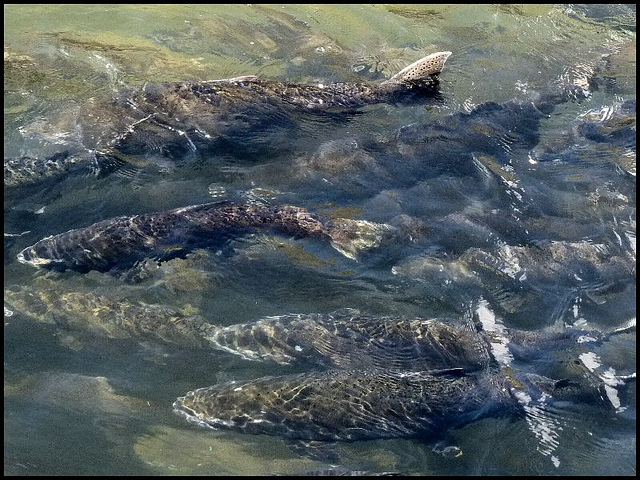
The salmon
ladder at Nimbus Hatchery in Rancho Cordova will open Nov. 5, signaling the
start of the spawning season on the American River. Department of Fish and Game
(DFG) hatchery workers will open the gates from the river at 10:30 a.m. and
will take more than a half-million eggs during the first week alone in an
effort to ensure the successful spawning of the returning fall-run Chinook
salmon.
The three major
state-run hatcheries in the Central Valley – the Nimbus Hatchery in Sacramento
County, and hatcheries on the Feather River in Butte County and the Mokelumne River in San Joaquin County – will take
approximately 38 million eggs over the next two months in order to produce an
estimated 24 million Chinook salmon for release next spring.
Each hatchery
has a viewing area where visitors can watch the spawning process. At Nimbus and
Feather River hatcheries, thousands of schoolchildren tour the facilities each
year. The visitors center at Nimbus Hatchery includes a playground with
replicas of giant salmon that are enjoyed by young and old alike. For more
information about spawning schedules and educational opportunities at each
hatchery, please visit the DFG website at www.dfg.ca.gov/fish/Hatcheries/HatList.asp.
Around the
state, there are eight state-run salmon and steelhead hatcheries, all of which
will participate in the salmon spawning effort. Those hatcheries, along with
federally run hatcheries, will be responsible for the release of 40 million juvenile
salmon into California waters. These massive spawning efforts were put in place
over the last 50 years to offset fish losses caused by dams that block salmon
from historic spawning habitat .
Once the young
salmon reach 2 to 4 inches in length, one-quarter of the stock will be marked
and implanted with a coded wire tag prior to release. DFG biologists use the
information from the tags to chart their survival, catch and return rates.
Media Contacts:
Andrew Hughan, DFG Communications, (916) 322-8944
Mark Clifford, DFG Hatchery Coordinator, (530) 918-9450







 Advertising
Advertising